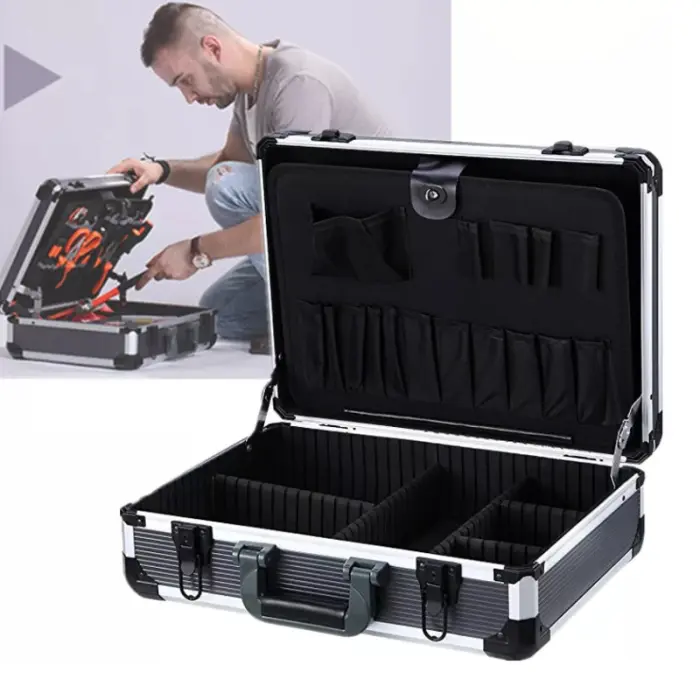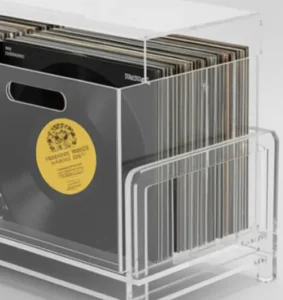Exploring Aluminum Tool Cases and Other Types of Materials

When selecting a tool case, durability and protection are essential, especially for professionals who need a dependable way to store and transport tools.
Aluminum tool cases are particularly popular due to their strength and lightweight nature, making them ideal for a wide range of applications.
Here, we’ll explore the benefits of aluminum tool cases, compare them to other materials, and examine various tool case designs to help you make the best choice.
How Strong is an Aluminum Tool Case?

Aluminum tool cases offer a high level of strength due to the unique properties of aluminum.
Studies show that aluminum has a high strength-to-weight ratio, making it both sturdy and easy to carry.
According to the Aluminum Association, aluminum alloys used in cases and other equipment applications are not only durable but also corrosion-resistant, offering longevity even in tough conditions.
For example, 6061 aluminum alloy is commonly used in tool cases because of its resistance to impacts and structural integrity, which keeps tools protected from harsh handling or environments.
Aluminum Tool Cases vs. Plastic: Which is Better?
| Factor | Aluminum Tool Case | Plastic Tool Case |
| Strength | Highly durable and impact-resistant. | Less impact-resistant and prone to cracking. |
| Weight | Lightweight and easy to carry, even with added reinforcements. | Generally lightweight but may vary based on thickness. |
| Weather Resistance | Resistant to moisture, temperature changes, and UV exposure. | Often weather-resistant but may warp under high heat. |
| Cost | Generally more expensive due to material quality and durability. | More affordable but may need frequent replacement. |
| Aesthetic | Sleek and professional look, ideal for corporate settings. | Available in various colors but may look less durable. |
| Security | Often includes locks or latches for secure storage. | Basic locking mechanisms; less secure. |
| Lifespan | Long-lasting with minimal wear and tear. | Prone to wear, especially with heavy use. |
Lightweight Yet Strong: Why Aluminum Outperforms Other Materials
One of the key advantages of aluminum is its ability to balance lightweight properties with exceptional durability.
This balance is due to aluminum’s high strength-to-weight ratio, which is significantly better than most materials used for tool cases.
This makes aluminum an excellent choice for those who need to transport heavy tools without adding excess bulk.
Moreover, aluminum is resistant to corrosion and does not rust, unlike steel, making it a low-maintenance material that remains resilient in different environments.
Other Types of Materials Used in Tool Cases
| Material | Pros | Cons |
| Steel | Extremely durable, secure, and impact-resistant. | Heavier than aluminum; susceptible to rust if lacks maintenance. |
| Plastic | Lightweight, affordable, and often weather-resistant. | Lower durability; can crack under heavy impacts. |
| Wood | Offers a classic look, ideal for collectors or craftsmen. | Heavier and prone to water damage; not ideal for mobile use. |
| Composite | A blend of materials for reinforced strength and weight. | May not be as durable as pure metals; higher cost. |
| Fabric (Nylon) | Lightweight and flexible, with easy access to tools. | Lacks impact resistance; not suitable for heavy tools. |
Types of Tool Case Designs
Hand-Carry Tool Box
Often used by mechanics, carpenters, and electricians, these boxes are convenient and come in various materials such as metal and plastic.
When choosing a hand-carry tool box, consider its durability and storage capacity based on the tools you frequently use.
Stationary Drawer-Style Tool Box
This design offers multiple drawers, often used in workshops or garages.
Stationary drawer-style tool boxes are typically larger and more durable, making them ideal for organizing tools in a fixed location.
They are not as portable as other designs but provide excellent accessibility and organization.
Roll-Around Tool Boxes
These boxes are designed with wheels for mobility, allowing users to move their tools easily across large workspaces.
Roll-around tool boxes are popular among mechanics and technicians who need to transport their tools frequently.
They often feature lockable drawers, non-slip liners, and built-in power strips for convenient storage.
Portable Trolley-Style Tool Boxes
Trolley-style tool boxes are designed for maximum portability, with wheels and a foldable structure.
They’re great for those who need to move tools from one job site to another frequently.
Some models feature telescoping handles and lockable compartments for added convenience and security.
Organizer Sets
These sets include compartments and trays specifically designed to keep smaller tools like screwdrivers and wrenches organized.
Organizer sets are especially helpful in maintaining a tidy workspace, making it easy to locate small tools quickly.
Truck-Mounted Tool Boxes
Mounted on the side or bed of a truck, these toolboxes are ideal for mobile professionals who need to keep tools secure on the go.
Truck-mounted boxes come in various sizes and are typically weather-resistant, providing durability even in outdoor settings.
Choosing the Right Tool Case Material for Your Needs
When choosing a tool case, consider the following:
- Weight: For portable cases, lightweight materials like aluminum or plastic are ideal.
- Durability: Aluminum, steel, and composite cases offer the highest durability.
- Cost: Plastic and fabric cases are more affordable, while aluminum and composite cases offer higher value for long-term use.
- Security: Aluminum and steel cases often provide better security features than plastic or fabric.



